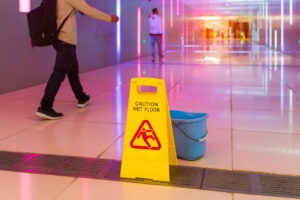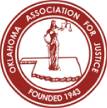
Level Your Understanding of Slip-and-Fall Settlements: Key Insights
Slip and fall injuries can have serious legal repercussions. Learn the key strategies for winning slip-and-fall settlements. Click here to get started.
According to the National Floor Safety Institute (NFSI), fall incidents account for over eight million emergency room visits in the United States. Slips and falls account for about 12% or over one million visits. They cause numerous health problems, from traumatic brain injuries to spinal cord injuries.
All those figures are already eye-opening, but what’s even more concerning is that someone else’s negligence is to blame for many of these incidents. In such cases, at-fault parties must pay slip-and-fall settlements to compensate victims.
So, if you or a loved one has suffered harm in a slip and fall caused by a negligent party, you have the right to pursue them for compensation. The legal experts at BDIW, Boettcher, Devinney, Ingle, and Wicker, our law firm in Oklahoma, compiled this slip-and-fall guide to share insights on this matter, so please read on.
Elements Forming the Basis for Slip-and-Fall Settlements
To receive slip and fall compensation in Oklahoma, a victim must establish the elements constituting a personal injury case. If even one of these elements isn’t present, or the victim can’t demonstrate them, the law may not hold the “defendant” (the party claimed to be at fault) liable.
Duty of Care
Slip and fall incidents fall under premises accident liability laws. In these cases, “duty of care” refers to a property owner’s or occupier’s legal obligation to take reasonable steps to ensure people visiting the property are reasonably safe from harm. They must:
- Identify potential hazards
- Take necessary steps to mitigate the hazards
- Warn visitors about known dangers
Breach of Duty
For a slip and fall case to be valid, the party claimed to be negligent should have breached their duty of care. Some examples include failure to:
- Clean up spills on the premises
- Repair slippery or damaged flooring, steps, or other walking surfaces
- Warn guests of known floor hazards (e.g., slippery floors due to wet conditions or being under maintenance)
Causation
Causation in a slip and fall case involves proving that the defendant’s negligence directly caused or contributed to the slip, fall, and subsequent injuries. Victims may also have to establish foreseeability, in which the defendant should have reasonably foreseen that the hazardous condition on the property could result in injuries like slips and falls.
Damages
No slip-and-fall settlement negotiation will proceed if there is no damage in the first place.
Damages refer to losses victims may suffer due to someone else’s negligence and can be economic or non-economic. Examples of slip and fall damages include:
- Medical Expenses: Past, present, and potential medical bills, including emergency room visits, doctors’ fees, and rehabilitation
- Lost Wages: Past and future lost income, including lost earning capacity if the victim can no longer return to work
- Property Damage: The cost to repair or replace personal property damaged during the incident (e.g., broken smartphones or laptops dropped during the slip and fall incident)
- Pain and Suffering: Current and future pain and suffering, such as mental anguish and emotional distress
- Loss of Function: Inability to do something due to the injuries, such as hobbies or activities
- Scarring and Disfigurement: Any physical scarring or disfigurement resulting from the injury
In some cases, courts may also decide to award victims punitive damages. Unlike economic (quantifiable) damages and non-economic (non-quantifiable) damages awarded as compensation, punitive damages are more of a punishment. Judges impose these on defendants to punish and deter future intentional, reckless, or negligent behavior or actions.
Our Team Is Here To Assist You Every Step Of The Way.
SPEAK TO AN ATTORNEY TODAYFactors Influencing Slip-and-Fall Settlements
Factors that affect the amount of a slip-and-fall settlement in Oklahoma include the severity of injuries and the defendant’s degree of negligence. In rare cases, punitive damages may also influence the amount a victim receives.
Injury Severity
Generally, the more severe the victims’ injuries, the higher their potential slip-and-fall settlements will be. Injury severity dictates the degree of necessary medical treatments and recovery.
More severe slip-and-fall injuries:
- Warrant more treatments, resulting in higher expenses
- Often necessitate more complex and expensive treatments
- Result in longer recovery, leading to extended hospital stays, rest, and loss of workdays
- Cause more pain and suffering
- Have higher potential for long-term health consequences
Let’s use moderate to severe traumatic brain injuries (TBIs) as an example; according to the U.S. CDC, people with these injuries may face chronic health problems. Of individuals who are still alive five years after the injury, 57% have moderate to severe disabilities, and a third must rely on others for help with daily activities. Over half (55%) have no job but had one during the time of their injury, and 50% must return at least once to the hospital.
Another example is a spinal cord injury (SCI). According to the National Institute of Neurological Disorders and Stroke, complete SCIs can result in a complete loss of nerve communication and muscle control, function, or feeling below the injury. They can also lead to many other problems, from depression to breathing difficulties.
Degree of the Defendant’s Negligence
Oklahoma operates on a modified comparative negligence basis, meaning an injured party’s compensation may decrease if they share fault in a slip and fall incident. For example, a property owner may claim that the victim ignored warning signs about a wet floor or that they were under the influence of alcohol when they slipped and fell.
Punitive Damages
Punitive damages are rare, but courts may still award them depending on the circumstances surrounding the slip-and-fall incident. For example, if the defendant has a long history of facing similar lawsuits, a court may punish them for their continued negligence.
Protect Your Rights as a Slip-and-Fall Victim
Victims of other people’s negligence have the right to fair slip-and-fall settlements. However, establishing the elements that constitute such cases can be challenging and complex.
For those reasons, it’s always in the best interest of victims to consult professional legal assistance.
Our Oklahoma law firm, BDIW, Boettcher, Devinney, Ingle, and Wicker, can fight for and protect your or a loved one’s rights in a slip-and-fall case. Our attorneys have over 65 years of combined experience handling injury claims successfully. With our compassionate assistance and legal expertise, we’ll strive to achieve the best possible results and the maximum compensation you deserve.
Speak with us today to schedule your free, non-obligatory case consultation.








